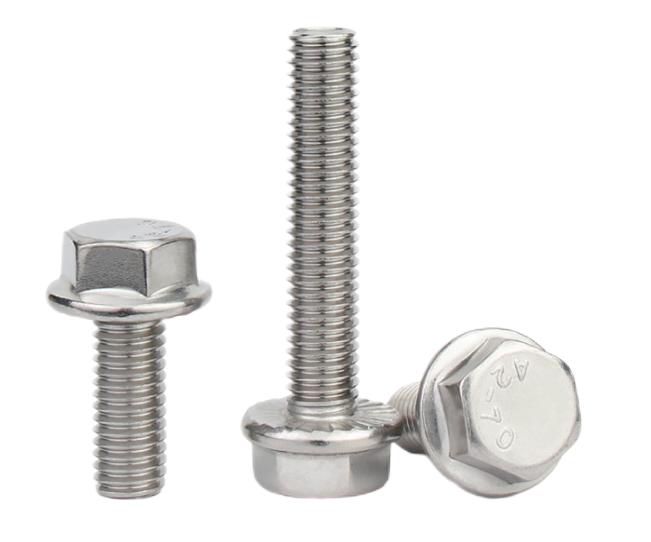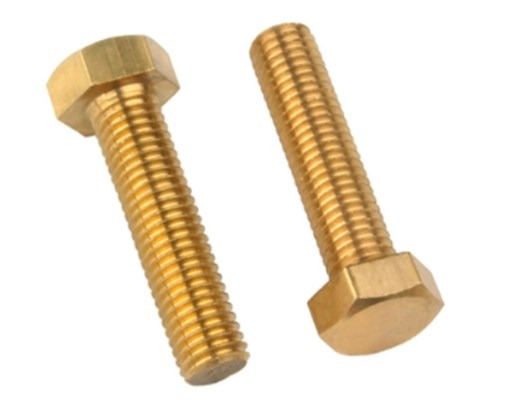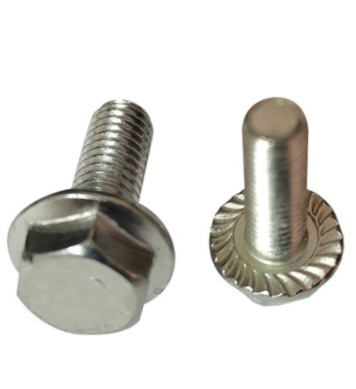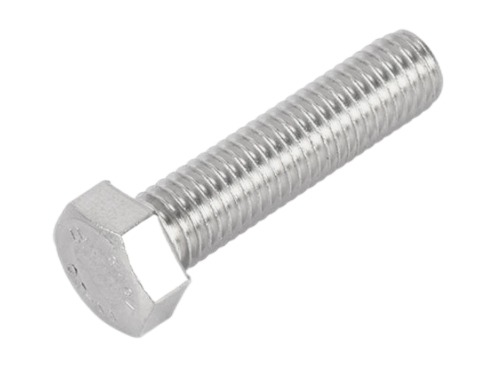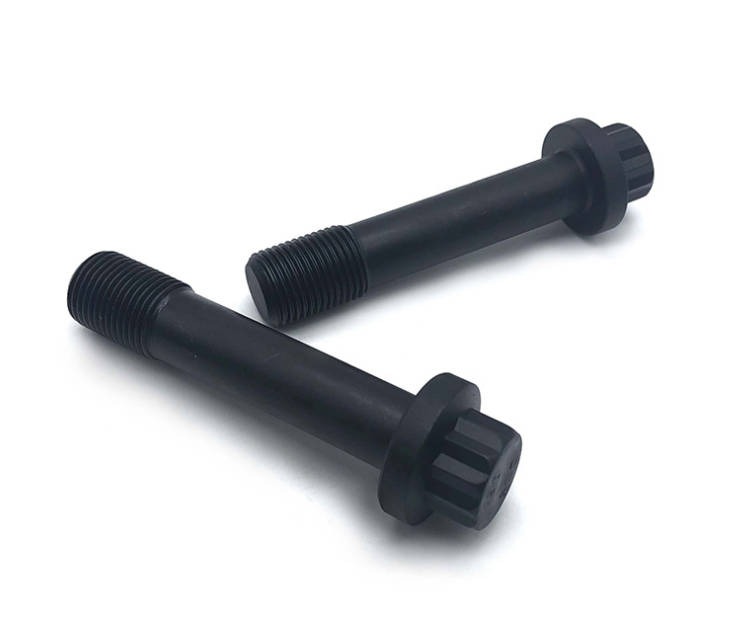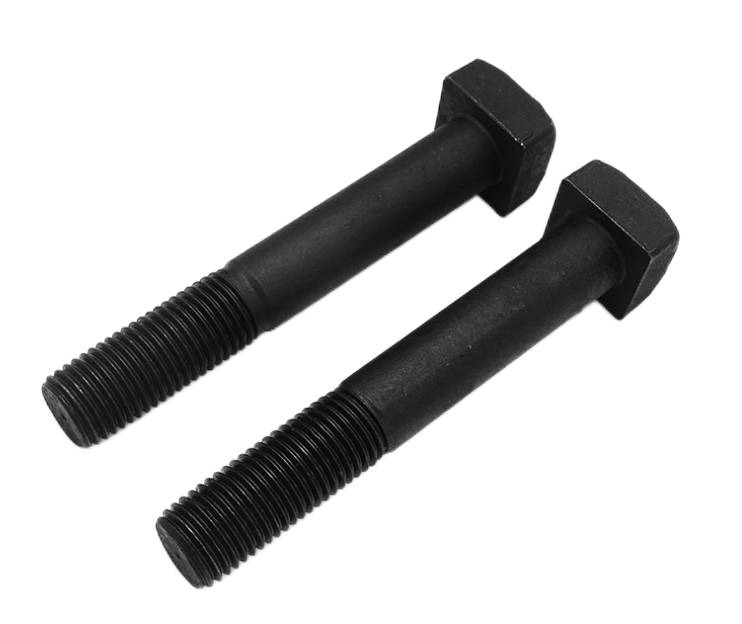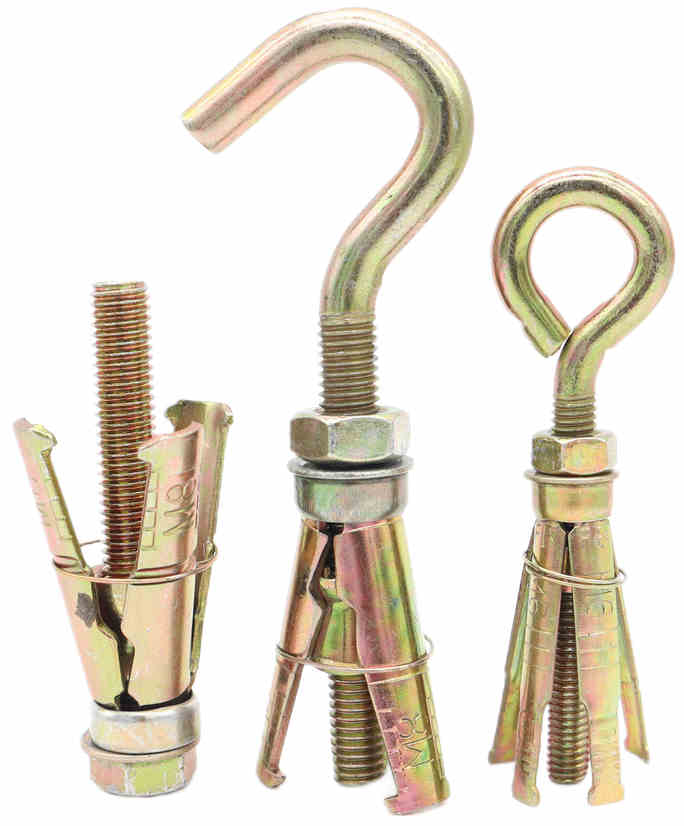A Guide to Hex Bolts
What is a Hex Bolt?
A hex bolt is a fastener composed of a head and shaft, which needs to be matched with a nut to fasten and connect two parts with a through-hole, which is characterized by its hexagonal head.
Hex bolts can be fully threaded or partially threaded (with a clear shank on one part of the body) and are suitable for use in a wide range of applications, usually mechanical and construction.
They are available in a variety of types, sizes, materials, and surface treatments, giving you the freedom and flexibility to choose the bolt that best suits your specific task or application. Due to their unique head shape, hex bolts are sometimes also called hex head bolts or hexagon bolts.

What are Hex Bolts Used for?
Hex head bolts are versatile and adaptable fasteners, making them suitable for a variety of uses in a range of industries and applications.
For example:
1. Hex bolt usage includes use in wood, metal, and many other environments and scenarios. They offer strong tensile properties and most standard types can be used in multiple positions (depending on the material and finish).
2. Hexagon bolts are widely used nails. Their primary use is heavy-duty fixing and fastening applications. This may include mechanical assembly carpentry tasks during the installation, repair, and maintenance of buildings, industrial plants, tower mast structures, bridges, and road infrastructure in construction projects. Such as fastening frames, engineering application vehicles, and automobiles, lifting machinery, etc.
How Do Hex Bolts Work?
The principle of action of the hexagonal bolt is to withstand the external force by the force generated by the close connection of two or more structural parts, and can be used in pre-tapped holes or with nuts, depending on the application.
They can be tightened with a range of tools including hex bolt wrenches, sockets, wrenches, hex keys, and ratchet wrenches. The hex head ensures that different types of tools can be used to easily grasp the hex bolt from multiple angles. This makes their installation and removal a simple process and ensures that once they are in place it is also easy to loosen or tighten the hex bolts.
Types of Hex Bolts
A variety of different types of hexagon bolts are available, each best suited to a different application and environment. Hex bolts are classified in many different ways, mainly by their size, the material or surface treatment used in manufacturing, and whether they are fully threaded or partially threaded.
The following sections provide further details on some of the key hex bolt types, giving you the knowledge you need to make a fully informed purchase decision.
Hex Bolt Threading
The thread of the hexagon head bolt is the helical structure that constitutes the main body of the bolt. It uses rotational force to drive the bolt securely and securely in place, helping to provide easier entry and exit to the material while also providing extra grip.
Both fully-threaded and partially-threaded hex bolts are available.
Half-threaded hex bolts are threaded down to the end only from half the length of the bolt. The unthreaded shank (also called the grip length) connects the threaded shank to the head. Partially threaded bolts provide a strong resistance level. This design prevents strain on the non-threaded part of the rod, ensuring that there are no weaknesses in this part.

Fully threaded hex bolts are threaded from the end of the bolt all the way to the head. They are ideal for use in heavy-duty fastening applications and are best suited for installation in pre-threaded holes. Properly installed fully threaded hex bolts can distribute stress over the entire length of the bolt, providing greater strength than partially threaded alternatives.
Hex Bolt Materials
Hex bolts are usually made of steel or stainless steel. While some manufacturers offer hex bolts made from other materials, like iron and copper, steel and stainless steel hex bolts are standard.
In addition, different coatings and finishes are offered. These are offered in a variety of qualities and appearances to suit a wide range of applications. Popular hex bolt finishes include bright galvanized, zinc hexagon bolt, passivated, oxidized black, and natural.
Steels come in different strengths and grades, typical steel hex bolt standards include EN8 steel and EN16 steel. As a guideline, the higher the number, the stronger the steel.
Stainless steel is another popular choice for hex bolts due to its strong corrosion resistance. Hex bolts made from stainless steel can be used for interior or exterior applications but galvanized steel is another common alternative and is ideal for interior use.
You may also find hex bolts made from other materials like brass, but this is less common. Although brass provides a high level of resistance against corrosion, it is usually more expensive so is often overlooked in favor of steel.

KENENG can provide you with the most cost-effective hex bolts that best suit your application. Please contact us for the most competitive price.



